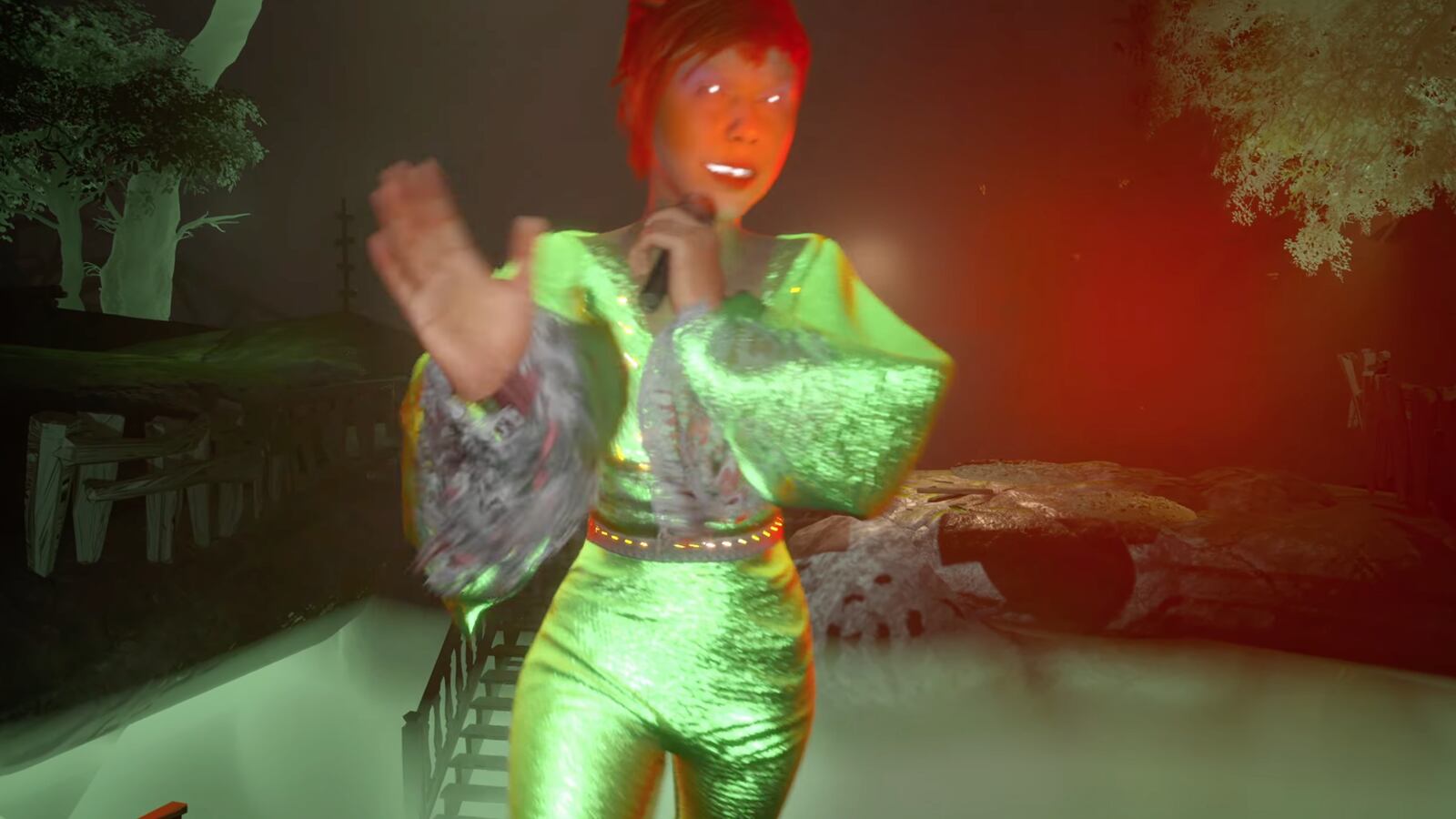From bots that can create award-winning “paintings” to ones that can make new videos, AI is getting better and better at creating art. This is fueling discourse into the ethics and implications of bot-made art that’s got plenty of people worried about what it means when a computer can even emulate creativity, something many previously thought was reserved for humans.
And if you weren’t creeped out before, maybe this uncanny valley-ass cover of Dolly Parton’s “Jolene” will convince you.
The song above was “sung” by Holly+, an AI created by flesh-and-blood musician Holly Herndon. She describes Holly+ as her “digital twin” that’s a “custom voice instrument” allowing her to deepfake her own singing. To create it, she created a computer model of her own voice by training it with her own recorded speech and singing.
The result is a downright uncanny simulation of Herdon. While there are moments in the “Jolene” cover that aren’t perfect, if you weren’t told that it was an AI doing the singing before listening, there’s a good chance you might have pegged it to weird production and performance choices.
This isn’t Herndon’s first foray into using AI for her music either. In 2019, she released an album dubbed “Proto” that also utilized bot-made vocals for songs. However, Holly+ represents her first foray into a “solo” digital persona—and it’s one that Herdon believes is simply confronting the inevitable.
“Vocal deepfakes are here to stay,” she wrote on her website. “A balance needs to be found between protecting artists, and encouraging people to experiment with a new and exciting technology. That is why we are running this experiment in communal voice ownership.”
She added that she believed that voice and language is “inherently communal” and that by allowing others to deepfake her voice she’d be able to “invite everyone to benefit from the proceeds generated from its use”—which is a lovely thought if it weren’t for the fact that deepfakes and AI open the doors for a wealth of ethical concerns including bad actors weaponizing it against other people.
Sure, Herndon might be okay with someone using her voice to cover Dolly Parton—but what happens if her voice is used to, say, spout harmful and biased ideas about marginalized groups? It’s not a stretch to say that this could be the case either, especially since we’ve seen AI falter time and again when it comes to bias and racism.
For now, Holly+ is an undoubtedly fun (if a little creepy) quirk of AI. Once it starts winning karaoke competitions, though, then we’re going to have a serious problem.





